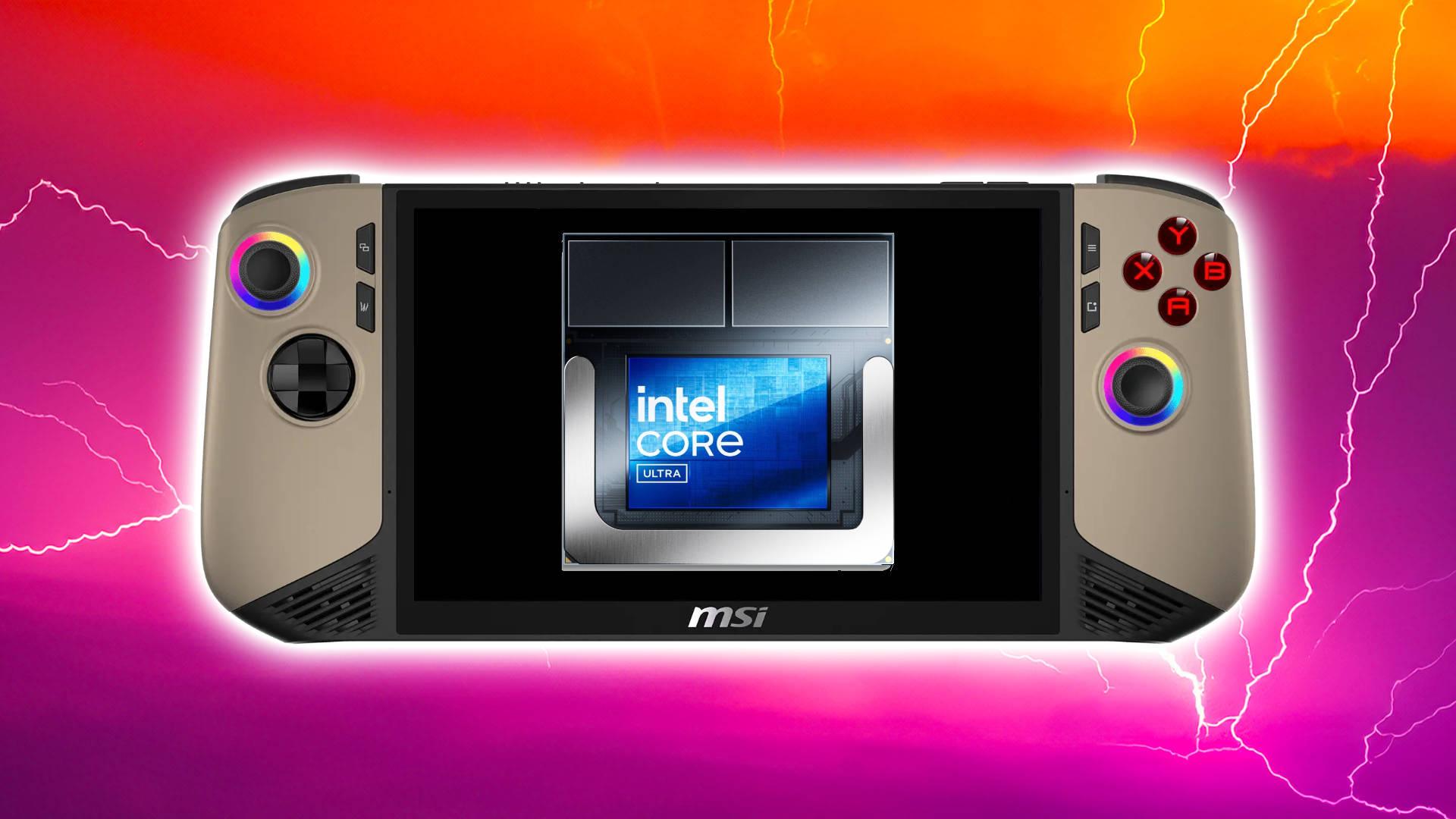
We've not seen a genuinely competitive Intel gaming CPU in some time, at least on our gaming PCs, but it's a different case on mobile. A new set of benchmarks shows that the Intel Core Ultra 7 258V is a decent performer on the MSI Claw 8 AI+ compared to the AMD Ryzen Z2 Extreme. While AMD does still come out on top, it's not a total disaster for Intel, proving it can be a serious contender in future handhelds against AMD-powered options such as the Steam Deck.
That's a far cry from its dominant position a few years ago, but Intel will be happy to know it can compete in this arena. AMD has, so far, dominated the market, with all the models on our best handheld guide using AMD chips so far. Luckily, MSI has helpfully used both AMD and Intel processors in its Claw lineup, allowing us to see how an Intel-powered Steam Deck rival can perform against AMD alternatives.
The benchmark data was compiled by Golden Pig Upgrade Pack in a video on Chinese video site bilibili, and later shared by regular tech leaker HXL in a post on X (formerly Twitter). The benchmarks pitted an MSI Claw 8 with the AMD Ryzen Z1 Extreme against the Intel Core Ultra 7 258V used in the newer MSI Claw 8 AI+.
On paper, both chips have eight cores, with similar CPU clock speeds, although the Intel Lunar Lake chip does have four lower-powered E cores, a smaller L3 cache, and a slower GPU clock speed. Both AMD and Intel's chips are a serious upgrade compared to the AMD APU found in the older Steam Deck, which has only four Zen 2 cores, a slower RDNA 2 GPU, and a maximum 15W power limit.
Across a series of ten games, the AMD handheld was faster in half of them, using both handhelds in 30W power mode, with Intel able to get ahead in three games, and an effective draw in two of them. The story is less impressive for Intel at 17W, however, with the AMD-powered handheld MSI Claw 8 seeing better frame rates across all but one game, Hitman 3.
This isn't perfect news for Intel, but given AMD's dominant hold over handhelds, it'll be breathing a sigh of relief that it has a CPU lineup that isn't vastly underperforming against its competitors. With any luck, the company will be able to compete with AMD in the handheld market - it's no good for gamers or manufacturers with a choice of just one dominant player, after all.
If you're thinking about a new handheld, take a look at our Steam Deck OLED review next to see why Valve's OG lineup continues to be our top choice for gamers. You can also take a look at another AMD-powered alternative, this time running Windows, in our Asus ROG Ally X review.
You can also follow us on Google News for daily PC games news, reviews, and guides. We also have a vibrant community Discord server, where you can chat about this story with members of the team and fellow readers.



